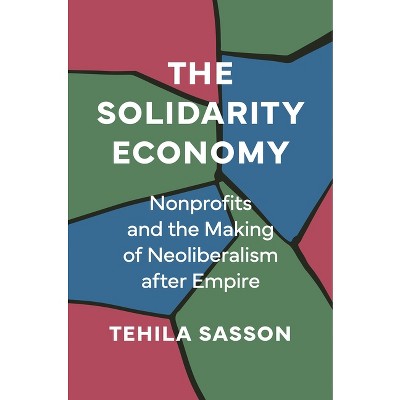Sponsored

The Economy of Anonymity - by Hector Amaya
Pre-order
Sponsored
About this item
Highlights
- We use avatars to play videogames.
- About the Author: Hector Amaya is Professor of Communication at USC Annenberg and the author most recently of Trafficking: Narcoculture in Mexico and the United States (2020), among other titles.
- 280 Pages
- Social Science, Media Studies
Description
About the Book
"We use avatars to play videogames. We use pseudonyms on social media. We use VPNs to mask our identities and activities. In the digital realm, anonymity is everywhere, a persistent option for those who wish to hide, experiment, and deceive. But we are anonymous in more contexts than the digital. In urban settings, we routinely experience the anonymity of the crowd, and routinely use anonymity to participate in political life and social protests. Anonymity matters. This book is a wager that we can learn much about society, humanity, and power by analyzing the structural tensions and possibilities of anonymity, and by analyzing how the economy of anonymity is changing in a modernity defined by computation. While many have explored the connections between surveillance, datafication, and privacy, relatively little has been done to theorize anonymity and its critical role in our lives. This book rebalances our intellectual investments by expanding our understandings of anonymity. Putting the work of Gloria Anzaldâua and Bernhard Siegert into conversation, Hector Amaya examines the contours of anonymity in different social domains-in relationship to individuals, institutions, and contexts; to epistemology and ontology; and to history and society. As the book shows, anonymity entails paradoxical possibilities-sometimes anonymity is experienced as freedom and other times as powerlessness, or subjugation"-- Provided by publisher.Book Synopsis
We use avatars to play videogames. We use pseudonyms on social media. We use VPNs to mask our identities and activities. In the digital realm, anonymity is everywhere, a persistent option for those who wish to hide, experiment, and deceive. But we are anonymous in more contexts than the digital. In urban settings, we routinely experience the anonymity of the crowd, and routinely use anonymity to participate in political life and social protests. Anonymity matters. This book is a wager that we can learn much about society, humanity, and power by analyzing the structural tensions and possibilities of anonymity, and by analyzing how the economy of anonymity is changing in a modernity defined by computation.
While many have explored the connections between surveillance, datafication, and privacy, relatively little has been done to theorize anonymity and its critical role in our lives. This book rebalances our intellectual investments by expanding our understandings of anonymity. Putting the work of Gloria Anzaldúa and Bernhard Siegert into conversation, Hector Amaya examines the contours of anonymity in different social domains--in relationship to individuals, institutions, and contexts; to epistemology and ontology; and to history and society. As the book shows, anonymity entails paradoxical possibilities--sometimes anonymity is experienced as freedom and other times as powerlessness, or subjugation.
Review Quotes
"It is rare a book opens up wholly new terrain. But Amaya shows how anonymity, understood as indexical dissociation, hugely expands our grasp of both resistance and institutional force. Written with great subtlety and imagination, this book shows how colonial power persists in an age of pervasive surveillance." --Nick Couldry, London School of Economics and Political Science
"This book presents an innovative theory of anonymity. Amaya convincingly argues that the subaltern subject will need to reclaim anonymity if it is to be used as a tool to challenge emerging broligarchies." --Ulises Ali Mejias, State University of New York at Oswego
About the Author
Hector Amaya is Professor of Communication at USC Annenberg and the author most recently of Trafficking: Narcoculture in Mexico and the United States (2020), among other titles.Shipping details
Return details
Frequently bought together

Trending Non-Fiction
















